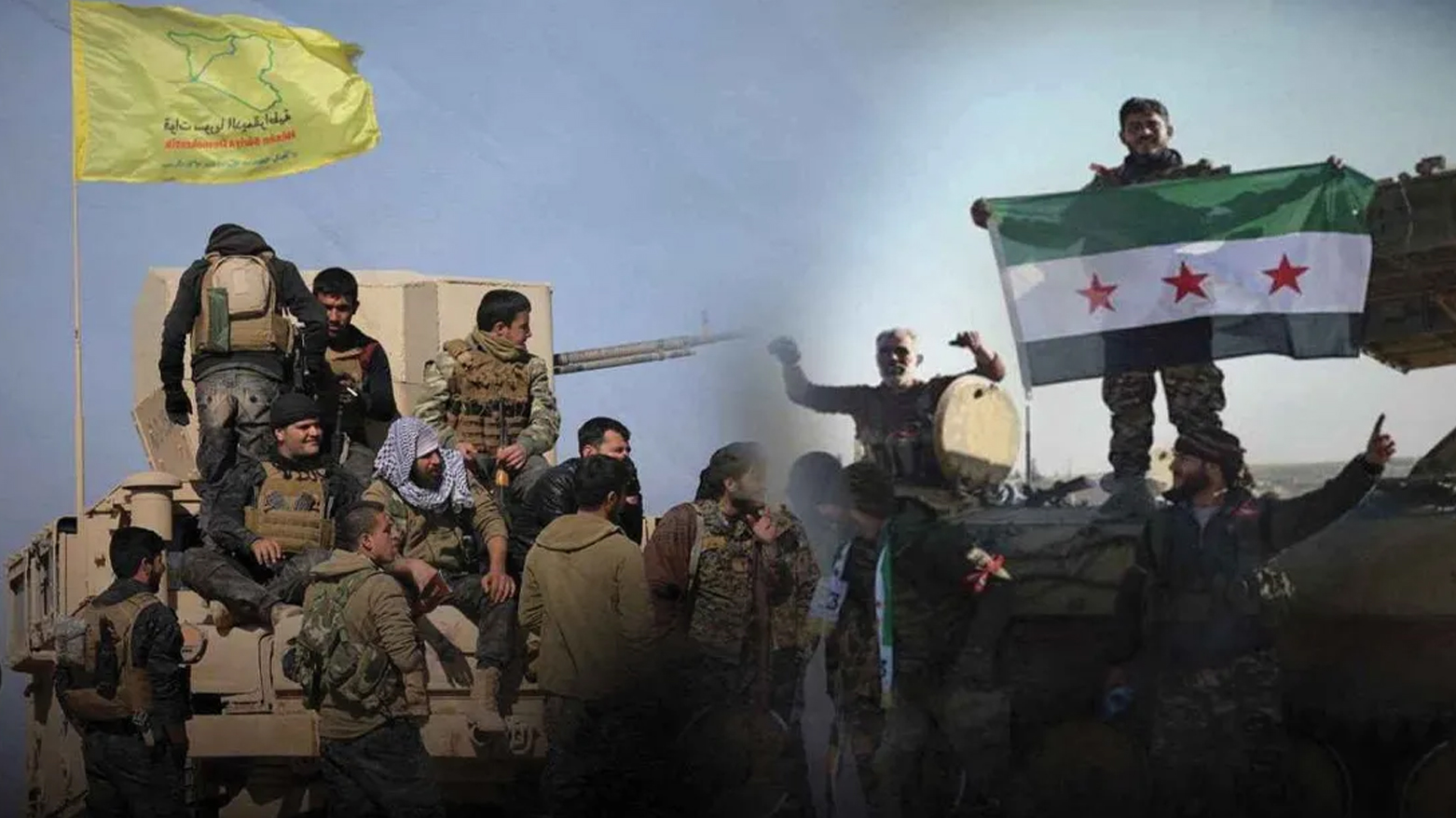SDF Submits List of 70 Commanders to Coalition to be Integrated into Syrian Army
The SDF has submitted a list of 70 commanders to the US-led coalition for integration into Syria's army, potentially allocating 30% of General Staff positions to SDF leaders. The move advances discussions on merging SDF units with state forces while preserving their identity.

ERBIL (Kurdistan24) – The Syrian Democratic Forces (SDF) have submitted a list containing the names of around 70 senior military commanders to the U.S.-led international coalition, marking a significant step toward the long-discussed integration of SDF units into Syria’s national army and defense structure, according to North Press- a media outlet close to the SDF).
The list reportedly includes the names of officers expected to join the Syrian Army, Ministry of Defense, and the General Staff, as part of a preliminary framework to merge SDF formations into state institutions.
The list encompasses commanders from three military divisions based in the regions of al-Jazira, al-Furat, and Deir ez-Zor, in addition to three special brigades under the General Staff’s command — one of which will focus specifically on counterterrorism operations in coordination with the international coalition.
According to the proposal, 30 percent of the General Staff’s leadership may be allocated to SDF commanders, reflecting the force’s growing recognition in shaping Syria’s future military structure.
A Western diplomatic source confirmed the handover of the list, expressing hope that “the integration process will soon move from planning to implementation.”
The development follows earlier remarks from Mazloum Abdi, the Commander-in-Chief of the SDF, who affirmed that his forces “will be a strong part of the new Syrian army under formation.” He reiterated that SDF counterterrorism units would continue their operations in partnership with the U.S.-led coalition.
Abdi’s comments came amid ongoing meetings between an SDF military delegation and Syrian government officials in Damascus, where both sides discussed practical mechanisms for integration.
However, SDF General Command member Sipan Hemo laid out on Oct. 10, 2025 that the force’s vision for a democratic and inclusive post-war Syria, emphasizing that integration into the national army must not come at the cost of the SDF’s principles or identity.
“From the moment of our formation, we have fought for a democratic and united Syria that protects the rights of all its components equally,” Hemo said. “We have paid a heavy price along this path.”
He rejected claims that the SDF is stalling the integration process, stressing that the force views participation in the national army as a strategic goal. “We believe the SDF is the foundation upon which a truly national Syrian army should be built,” he stated. “Such an army cannot be formed without our participation.”
Yet, Hemo warned against any attempts to impose what he described as a “narrow vision” aimed at dissolving or marginalizing the SDF. “We will never accept such attempts,” he said. “The integration we seek must preserve our identity, our struggle, and the rights of all Syrian communities — Sunni, Druze, Christian, Kurd, and Alawite alike.”
Hemo also pointed to Afrin as the ultimate measure of the Syrian government’s commitment to peace and reconciliation. He insisted that the return of displaced residents, compensation for losses, and accountability for violations must precede any genuine progress toward unity.
“We told them clearly — your stance on Afrin will be the real measure of your sincerity,” Hemo said. “Only when you approach Afrin with fairness and justice can we begin to see change.”
For Hemo, Afrin remains not only a humanitarian concern but also a political and moral benchmark for the future of coexistence in Syria.
Reaffirming the SDF’s mission, Hemo described the force as a national guarantor of Syria’s unity and diversity. “The SDF is a national force capable of bringing all components together,” he said.
He emphasized that unless the Syrian government takes credible confidence-building steps, the SDF will continue to act as a protective shield for the existence, identity, and rights of its people.
“Our identity and the dignity of our fighters are non-negotiable,” Hemo said. “Any true national army must be built upon respect, equality, and recognition — not domination or exclusion.”
By framing integration as both a political and moral process, Hemo underscored the core dilemma in Syria’s transition — whether the future army will reflect centralized authority or democratic pluralism.
“The government’s progress depends on its ability to take meaningful steps,” he said. “Every delay will only reflect its own hesitation.”
The SDF, formed in 2015, has been the main partner of the international coalition in the fight against ISIS. Its leadership insists that the force’s future lies not in separation but in contributing to a democratic, pluralistic Syria that acknowledges its sacrifices and secures the coexistence of all its communities.